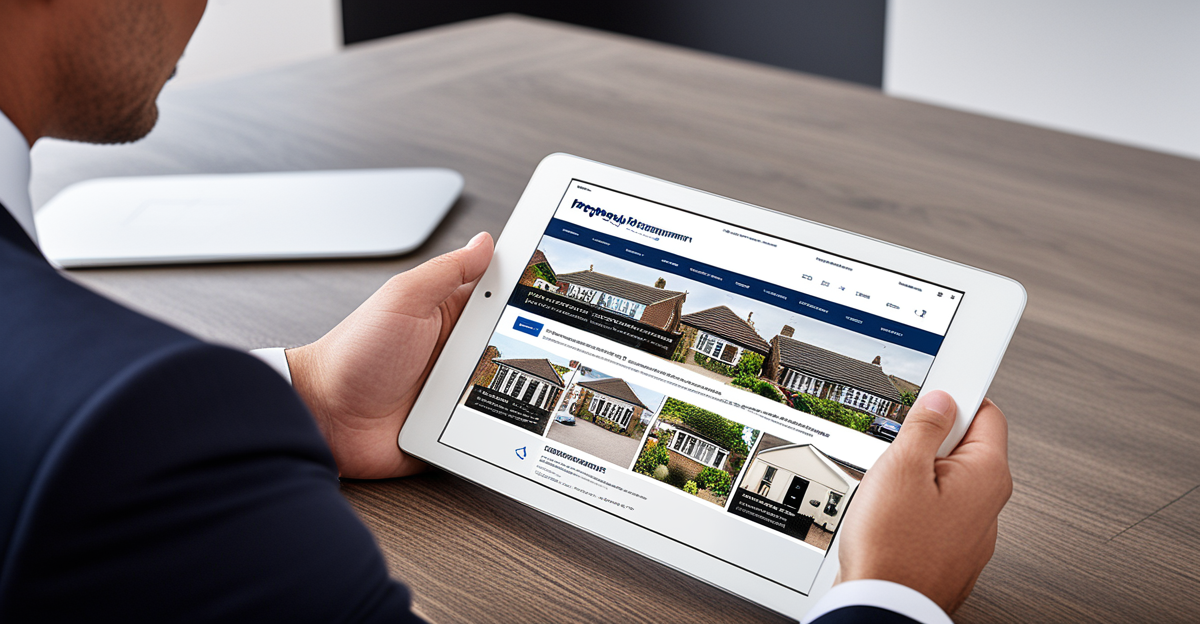The role of digital platforms in transforming UK property management
Digital transformation in property management has become a cornerstone of modern UK real estate software innovation. These platforms offer a suite of functionalities that streamline property management tasks. At their core, digital platforms centralise tenant records, automate rent collection, and integrate maintenance scheduling. Such tools reduce manual effort and error, allowing property managers to focus on strategic decisions rather than routine work.
The immediate impact on operational efficiency is notable. Property management technology in the UK facilitates quicker communication, faster response times to issues, and seamless record keeping, thereby minimising downtime and enhancing tenant satisfaction. For example, automated workflows ensure that maintenance requests are tracked and assigned in real time, avoiding delays common in traditional methods.
In the same genre : How Does the UK’s Real Estate Market Affect Personal Financial Planning?
Furthermore, digital platforms are highly relevant to the evolving UK property sector, where rising regulatory demands and complex portfolios require adaptable technology solutions. The ability to access real-time data, analyse properties’ performance, and optimise resource allocation has become essential. This digital evolution not only supports compliance but also drives competitive advantage in the increasingly dynamic UK property market.
Streamlining operations and driving efficiency
Digital transformation in property management hinges on property management automation to optimise workflow and reduce manual tasks. Online property management tools centralise administrative activities, enabling faster document processing and easy access to tenancy records. This automation accelerates routine functions like rent reminders and lease renewals, significantly cutting down human error.
Also to discover : How is the UK housing market adapting to changing consumer preferences?
Integrating maintenance requests with scheduling software allows property managers to respond promptly. Instead of juggling phone calls and emails, automated workflows track and assign repairs in real time, ensuring speedy resolutions. This synergy between task automation and maintenance coordination boosts operational efficiency in the competitive UK property management sector.
Scalability is another key benefit for property management companies leveraging these technologies. With workflow optimisation UK property management becomes more agile, handling larger, more complex portfolios without bottlenecks. Digital platforms streamline task delegation and reporting, freeing time for strategic planning and client interaction.
In summary, property management automation and online property management tools enhance speed, accuracy, and scalability, forming the backbone of effective workflow optimisation UK property teams rely on today.
The role of digital platforms in transforming UK property management
Digital transformation in property management reshapes how landlords and managers handle their portfolios using advanced property management technology UK solutions. These digital platforms centralise key functions such as tenant databases, rent collection automation, and maintenance coordination. This consolidation reduces the need for repetitive manual input and minimises errors, ensuring efficiency and reliability.
The immediate impact on operational workflows is substantial. Platforms equipped with real-time data access allow managers to track property performance and quickly address tenant issues. This speed and accuracy improve tenant satisfaction and reduce vacant periods, critical in today’s competitive market.
Moreover, UK real estate software solutions are designed to meet evolving sector demands. With increasing regulatory scrutiny and larger property portfolios, these tools provide adaptability and scalability. They offer compliance support through systematic record-keeping and enable data-driven decisions that optimise resources and profitability.
In essence, digital transformation in property management is not just a convenience; it is a strategic asset enhancing operational control and market responsiveness across the UK property landscape.
The role of digital platforms in transforming UK property management
Digital transformation in property management fundamentally reshapes how landlords and agents control property portfolios, utilising property management technology UK to centralise tenant data, automate rent collection, and streamline maintenance coordination. The core functionalities of these digital platforms reduce manual workload by replacing fragmented processes with integrated solutions, thus lowering human error and improving reliability.
The immediate impact on operational efficiency is striking. Property managers gain access to real-time updates, allowing rapid response to tenant requests and maintenance issues, which mitigates downtime and boosts tenant satisfaction. This agility is especially crucial in a competitive market where vacancy rates directly affect profitability. Through UK real estate software, managers monitor financial and operational metrics seamlessly, enhancing forecasting and decision-making.
Moreover, digital platforms adapt to the evolving demands of the UK property sector, where regulatory compliance and managing diverse portfolios are increasingly complex. By consolidating records in one place, these tools provide transparency and audit trails vital for meeting legal standards. Consequently, digital transformation in property management is not just technological advancement but a strategic enabler enhancing both operational control and scalability.
The role of digital platforms in transforming UK property management
Digital transformation in property management deploys advanced property management technology UK to integrate vital processes such as rent collection, tenant data management, and maintenance scheduling into unified platforms. These digital platforms eliminate disjointed workflows by centralising information, which reduces errors and accelerates task completion. At the core, UK real estate software automates routine tasks while providing intuitive interfaces that simplify complex portfolio oversight.
The immediate effect on operational efficiency is substantial. Property managers benefit from real-time visibility into property performance and tenant activity, enabling swift responses that enhance tenant satisfaction and reduce vacancy durations. For instance, automated alerts for upcoming lease renewals or maintenance needs streamline actions, cutting down administrative lag.
These platforms are particularly relevant as the UK property sector faces rising regulatory demands and increasingly diverse portfolios. By providing comprehensive audit trails and compliance tools, digital platforms support adherence to legislation. Furthermore, their scalability adapts to managing anything from a few properties to extensive estate portfolios, helping managers maintain control amid the sector’s evolving complexity.
Ultimately, digital transformation in property management equips UK landlords and agents with the strategic agility necessary for today’s competitive, fast-moving market.
The role of digital platforms in transforming UK property management
Digital transformation in property management revolutionises how portfolios are managed by consolidating critical functions into unified platforms. Property management technology UK solutions centralise tenant databases, automate rent collection, and streamline maintenance scheduling. This integration eradicates fragmented workflows, reducing errors and saving time.
The immediate operational benefits are clear. With access to real-time updates via UK real estate software, property managers respond promptly to tenant requests and maintenance issues, significantly decreasing vacancy periods. Automated alerts for lease renewals and repairs ensure no task is overlooked, boosting overall efficiency.
These digital platforms also address the rising complexity of the UK property market. Increasing regulatory demands require thorough audit trails and compliance support, which these systems provide seamlessly. Scalability is embedded, allowing management of diverse portfolios from small buildings to large estates without losing control or accuracy.
Ultimately, digital transformation in property management equips UK landlords and agents with powerful tools to enhance operational control, tenant satisfaction, and profitability within a rapidly evolving sector. This technological foundation is becoming indispensable for competitive, compliant, and efficient property management.
The role of digital platforms in transforming UK property management
Digital transformation in property management significantly redefines traditional processes through advanced property management technology UK solutions. Central to these platforms is the unification of tenant data, rent automation, and maintenance scheduling into a single interface. This consolidation eliminates fragmented workflows, ensuring data consistency and minimising errors.
For property managers, the immediate impact is improved operational efficiency. Access to UK real estate software with real-time alerts enhances responsiveness, allowing swift handling of tenant needs and maintenance issues. This agility reduces vacancy rates and optimises cash flow.
Furthermore, digital platforms are highly pertinent to the evolving UK property sector, which faces increasing regulatory pressures and portfolio complexities. They support compliance by generating comprehensive audit logs and enable better resource allocation through data-driven insights. The scalability of these tools accommodates growing portfolios seamlessly, making them indispensable for modern management practices.
The role of digital platforms in transforming UK property management
Digital transformation in property management hinges on advanced property management technology UK solutions that unify tenant data, rent processing, and maintenance scheduling into cohesive platforms. These systems are designed to replace fragmented tasks with streamlined workflows, reducing duplication and errors that impede efficiency.
A key functionality of these UK real estate software platforms is real-time data accessibility. This feature allows property managers to monitor tenant interactions, financial metrics, and property conditions instantly, enhancing decision-making speed and accuracy. For example, automated alerts for lease expirations or maintenance needs prompt proactive management, limiting vacancy and costly repairs.
The relevance of digital transformation in this sector is underscored by rising regulatory demands and portfolio complexity characteristic of the UK property market. Property management technology UK not only facilitates compliance through secure, centralised record-keeping but also supports scalability, enabling managers to handle diverse property sizes and types effectively. As portfolios grow, the adaptability of these digital platforms ensures consistent operational control and agile response capabilities.
By integrating critical functions and providing actionable insights, digital platforms constitute a crucial strategic asset, redefining how landlords and agents maintain efficiency and competitiveness in UK property management.






